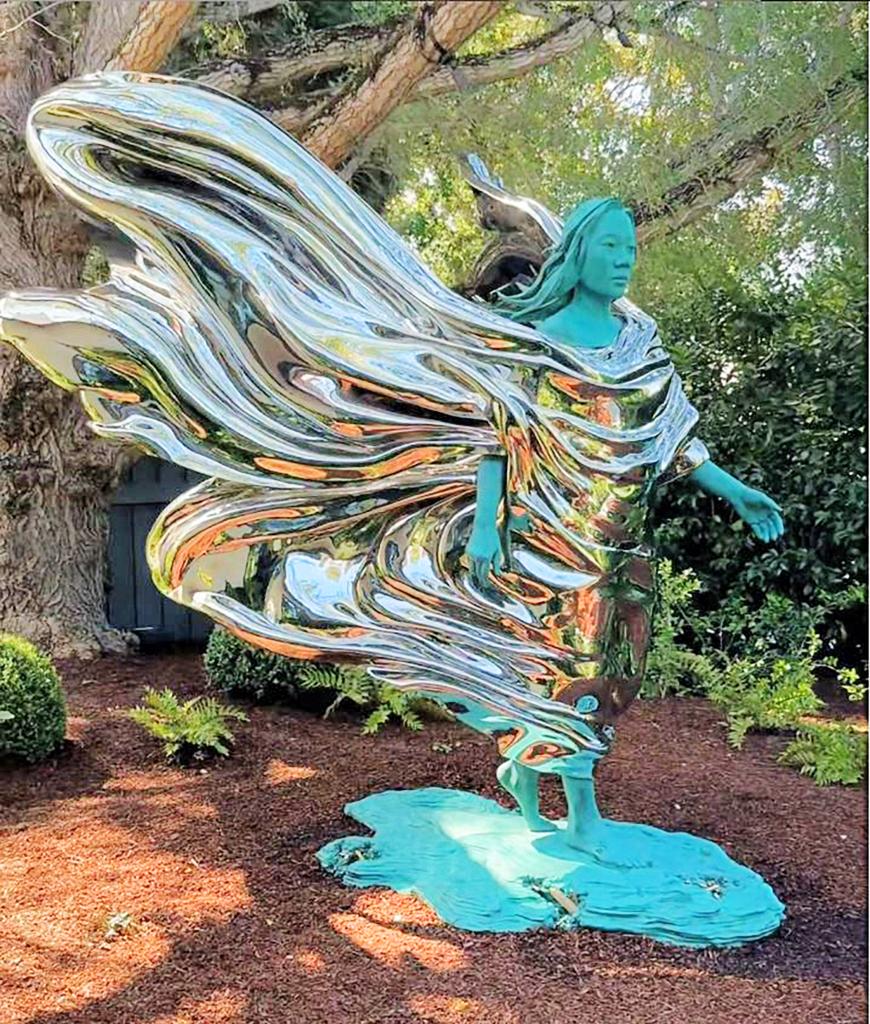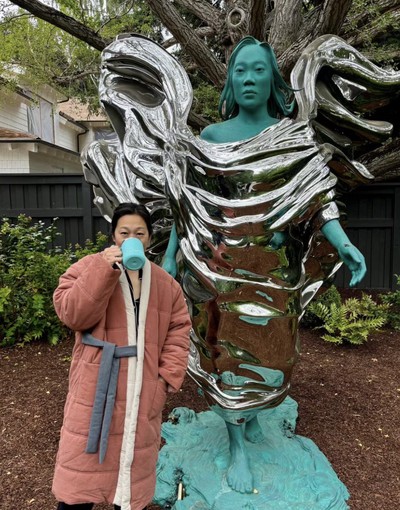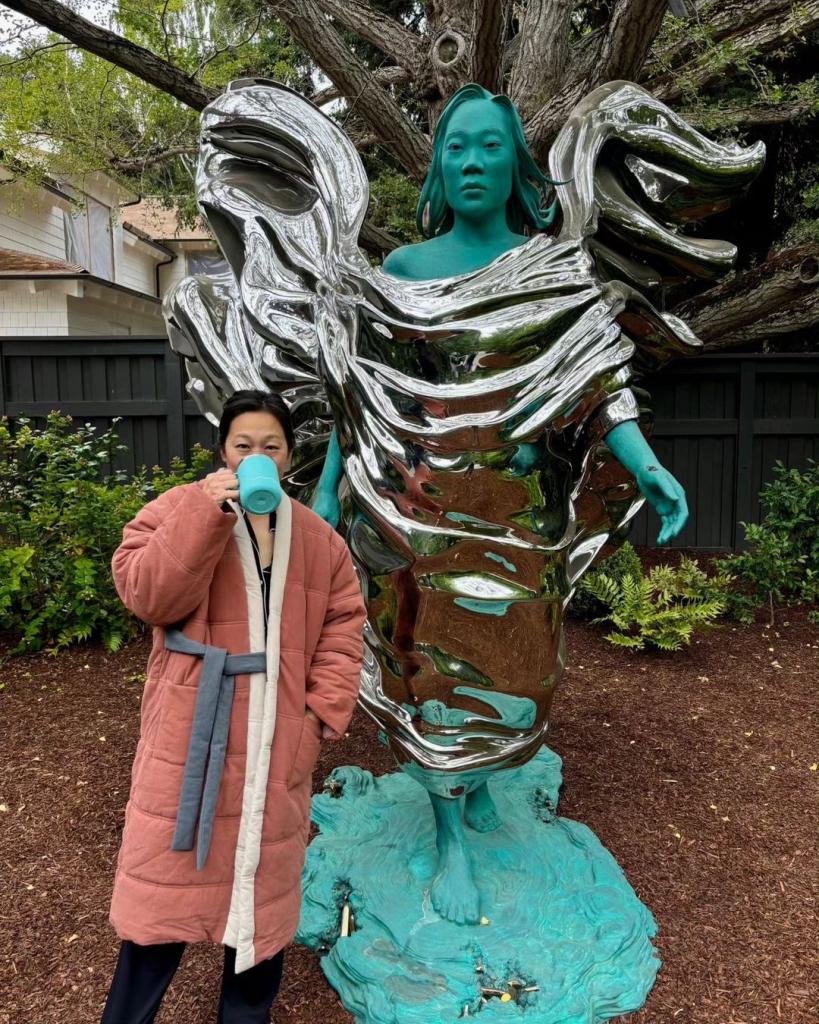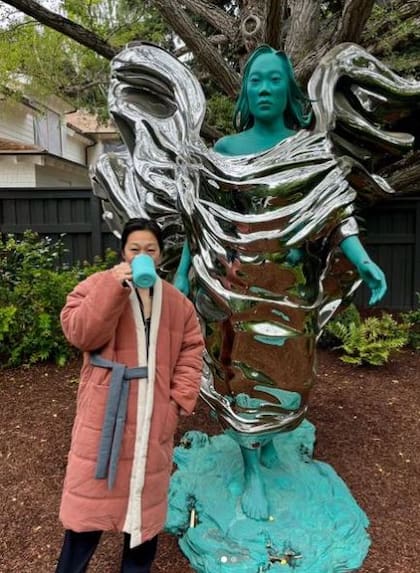Mark Zuckerberg's Romantic Tribute Revives Roman Love Traditions
Mark Zuckerberg's stunning statue of Priscilla Chan revives Roman love traditions, sparking a modern conversation about romantic gestures and devotion.

Key Points
- Mark Zuckerberg
honored his wife,
Priscilla Chan, by commissioning a statue that revives the Roman tradition of celebrating love through art.
- The sculpture, created by artist Daniel Arsham
, symbolizes loyalty and devotion, while connecting their family narrative to classical history.
- The public response highlights a blend of admiration and critique, sparking conversations about modern expressions of romance and affection.
Mark Zuckerberg has captivated the internet yet again, but this time, it’s not for a tech innovation or a social media update. The co-founder of Meta has taken a bold step in expressing his love for his wife, Priscilla Chan, by commissioning a stunning statue that revives the age-old Roman tradition of honoring beloved spouses through art. In doing so, Zuckerberg not only makes a grand romantic statement but also opens a dialogue about modern interpretations of love and admiration.

The statue, crafted by renowned artist Daniel Arsham, stands over two meters tall and depicts Chan in dynamic motion, adorned in a flowing metallic cloak that alludes to wings—a symbol of freedom and aspiration. Zuckerberg shared the unveiling on
with the caption, “Bringing back the Roman tradition of making sculptures of your wife,” reflecting both his intent and the significance of the piece.
The Artistic Legacy of Roman Traditions
In ancient Rome, sculptures of wives served as symbols of loyalty, devotion, and familial honor—a practice grounded in the principle of “pietas.” This emphasis on relationships and connections is strikingly relevant in today’s world, where personal expressions of love can sometimes feel overshadowed by materialism. By reviving this tradition, Zuckerberg subtly invites us to reflect on how we honor our loved ones.

Zuckerberg's action signifies more than a lavish gift; it paints a picture of a relationship built on admiration and legacy. Through this sculpture, he acknowledges Priscilla's pivotal role not only in his life but also in their family. They named their children after famous Roman emperors—Maxima, August, and Aurelia—further embedding these classical ideals into their modern family narrative.
The Public’s Response: Love and Critique
The response on social media has been a blend of admiration and humor. While many commenters praised Zuckerberg’s gesture as a high bar for husbands everywhere, others have pointed out the extravagance of the idea. “This is the most billionaire thing to do ever,” quipped one Instagram user, highlighting the disparity between typical romantic gestures and the scale of Zuckerberg’s offering. Yet, this mixture of reactions underscores a vital conversation about expectations in relationships today.

Critics and admirers alike can find common ground in appreciating the symbolic nature of such gestures. In a fast-paced world where love can sometimes be masked by routine, Zuckerberg brings a fresh perspective on romantic expression. The dialogue evoked by this sculpture encourages couples to explore how they manifest their affection and commitment.
A Lesson in Legacy and Love
What’s more, the choice of artist in this endeavor adds another layer to the story. Daniel Arsham is known for embedding historical and contemporary themes within his works. By collaborating with him, Zuckerberg aligns himself with a narrative that bridges the past and future—art that speaks to the timeless nature of love and devotion, just as Roman sculptures did centuries ago.

This public admiration for the sculptural tribute reflects society’s growing appreciation for artistic expressions of affection, encouraging individuals to think beyond traditional gifts. Such grand gestures could reinvigorate the way we view relationships, prompting more people to seek out unique ways to celebrate their love, much like Zuckerberg did.
Mark Zuckerberg’s commitment to Priscilla Chan through artistic expression serves as a vibrant reminder: love should be celebrated in ways that resonate with our values and traditions. As we witness the evolution of romantic gestures in the modern age, let us embrace creativity and sincerity in our own relationships. After all, true love transcends time, finding its place in both grand sculptures and the small, everyday moments that define our shared lives together.
